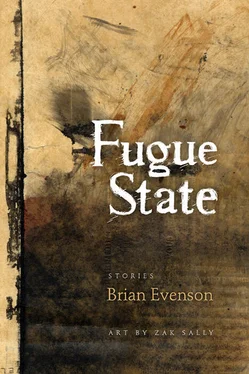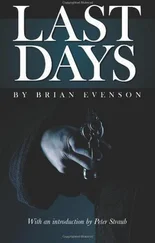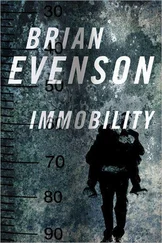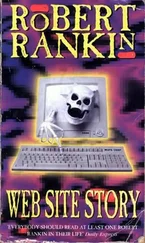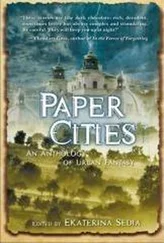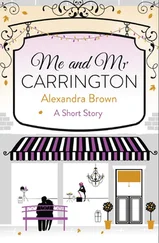The tower was nearly as bare as the parlor had been. There was a bed in the center. On the floor beside it was what Sindt judged to be an imitation Persian rug, grown discolored from sunlight, threadbare in its center. Pushed against a wall, just beside a window, was a small writing desk, a place for an inkpot cut into it. A chair sat next to it, the back of it cracked down the middle.
“Satisfactory?” asked Craven, and, when Sindt nodded slightly, he left.
The room was roughly circular. He found, when he went to the leftmost of the three windows, that the tower was high enough for him to see out over the remains of the forest and catch a glimpse of the town below. The rightmost window revealed only the mountain rising beyond the house. The center window looked down on the roof of the modified greenhouse. Sindt ran his finger against the wall and it came away filthy with ash. There are ways, perhaps, he thought, to bow delicately out of this visit to Craven — perhaps by pleading a bleeding ulcer or some other dolorous yet difficult-to-verify condition. Down below, the sun glinted off the greenhouse panels. He could see Craven, even smaller than usual, walking past the greenhouse and then out toward the trees, ridiculous in his alpine costume. Then he lay down on the bed, slept.
He was awoken by a jangling sound, which, as he soon discovered, was coming from outside his door. It was Craven. He had shucked his alpine costume in favor of a pair of slacks and a blazer a decade out of style. In his hand he held a battery of sleigh bells that struck Sindt as vaguely sinister.
“Dinner?” Craven asked.
Sindt rubbed his eyes, buttoned his shirt back up, followed Craven down the stairs. The house had come to him almost by accident, Craven informed him. A train he had been taking had broken down a few miles shy of the town below. Instead of waiting for it to be repaired, he climbed out of the train’s window, hoping to travel on foot to the station. Once under way, however, he left the iron rails and quickly lost his sense of direction. Hoping that by climbing higher he might be able to see the station, he mounted the slope and stumbled onto the logging road—
“—timber road,” Sindt suggested.
“Timber road.” Craved nodded affably. “And here it was, unoccupied, but nearly in the condition you see it now.”
He ushered Sindt toward his seat. The table was already laid, medallions of pork bleeding on their plates, greens in bowls beside, wine decanted, chef nowhere to be seen. They ate quickly, both sitting clumped at one end of the rather large but remarkably crude table. When finished, they repaired to the parlor and sat facing each other, brandy glasses in their hands.
“You don’t mind living here alone?” Sindt asked.
“I’m not alone,” Craven said. “You’re here as well.”
“Just for a day or two,” Sindt said. “My back, the twenty-second vertebra, tremendous pain—”
“No,” said Craven. “I won’t hear of you leaving so soon.”
Not knowing what else to do, Sindt emptied his glass.
“In any case, there’s the cook,” Craven said. “Don’t forget the cook.”
He was oddly beaming as he said it. There was, Sindt realized, a certain resonance in the words. Sipping his brandy, staring into the cold fireplace grate, Sindt realized that somewhere in the middle of Craven’s novel Velvet Fury a variation of the same phrase had appeared, uttered by the parodic detective and protagonist as a kind of obscure joke:
There’s the crook. Don’t forget the crook.
For an instant Sindt held himself perfectly still. He could feel a pressure in his head. The alpine garb Craven had been wearing earlier, he now realized, recalled that of a minor character in Craven’s philosophical novel, Melly & Tate, a character mentioned briefly, passed over in the course of a paragraph. The meal they had had, bloody medallions of pork, greens without other vegetables or side dishes, had appeared, if he was not mistaken, as a dinner eaten by the wife of the protagonist in Knife Diet. Perhaps Craven’s simple outfit now, slacks and outdated sport coat, was an obscure reference to another of his texts. The house was apparently less a literal space than a literary space.
“I’ll leave you in peace,” said Craven. He stood and, after setting his glass on the mantel, picked up the hunter’s cap discarded there earlier.
“And which room is yours?” Sindt asked, choosing a phrase he hoped was devoid of any literary referent whatsoever.
“My room?” Craven said, and frowned. “Hardly important.”
Once Craven was gone, Sindt finished his drink, then set the glass beside Craven’s own. And then, realizing that Craven’s characters were always leaving drained glasses on fireplace mantels, he carried both glasses into the dining room, then set them on the table. He stayed there looking at them and then picked them up again, carried them into the kitchen.
The kitchen was dark. From under the pantry door he could detect a feeble light. Having set the glasses on the counter, he knocked softly. There was no reply. He knocked again, again heard nothing. When he opened the door, he saw that the room stretched back farther than he had imagined, parsed by tiers of shelves. Near the door was less a pallet than a pile of ragged blankets. He pushed at them with his toe. The chef was nowhere to be seen, perhaps hiding back behind the shelves.
He closed the pantry door and then methodically explored the house. There were six other bedrooms besides his tower, the dining room, the parlor, a library (filled only with multiple copies of Craven’s works), a study. The house was sparsely decorated, the walls scorched in almost every room. Craven was nowhere to be seen.
He climbed the stairs to the tower, undressed. Yet when he turned off the light, he realized there was a glow coming through the center window. He watched light play on the ceiling and then, unable to sleep, got up, looked out. He could see, below, the greenhouse, the light from inside it illuminating the whole of the structure and shining up through the glass roof. Craven was inside, Sindt saw, sitting at a desk with his back to him, and Sindt could see that Craven was crouched over something, his right arm hidden before his body. There was a sheaf of papers to either side of him. Sindt watched, first leaning against the windowsill and then pulling the chair away from his own desk and putting it beside the window. Finally he saw Craven add a piece of paper to the rightmost sheaf, take a sheet from the leftmost sheaf. There is Craven, he thought with a certain amount of hatred, desperately adding another insignificant work to an already insignificant body of work, and with that thought, he found himself able to return to his bed and fall asleep.
He awoke several hours later, anxious. He was in a house, living out situations that seemed carefully constructed by Craven out of fragments of his novels. Where finally did that leave Sindt? He was not one of Craven’s characters, was not a literary referent, had no intention of becoming one if he could help it. But perhaps even now Craven was writing about him. He could still see on the ceiling the wash of light from the greenhouse below, and when he stood, went to the window, could see Craven still hunched over his desk, a sheaf of paper to either side of him. He sat there watching Craven, the papers moving slowly from one sheaf to the other, until dawn broke and the transparent glass of the greenhouse turned sun-flecked and opaque.
He dressed, stumbled downstairs to the dining room. Craven was already at table, bright-eyed, a plate of eggs before him.
“Sleep well?” Craven asked, picking up his fork.
Yes, Sindt said, choosing his words with care, he had slept well, no interruptions, but his back — not his problem, the bed, you see, perhaps he would have to regretfully cut his visit short.
Читать дальше
